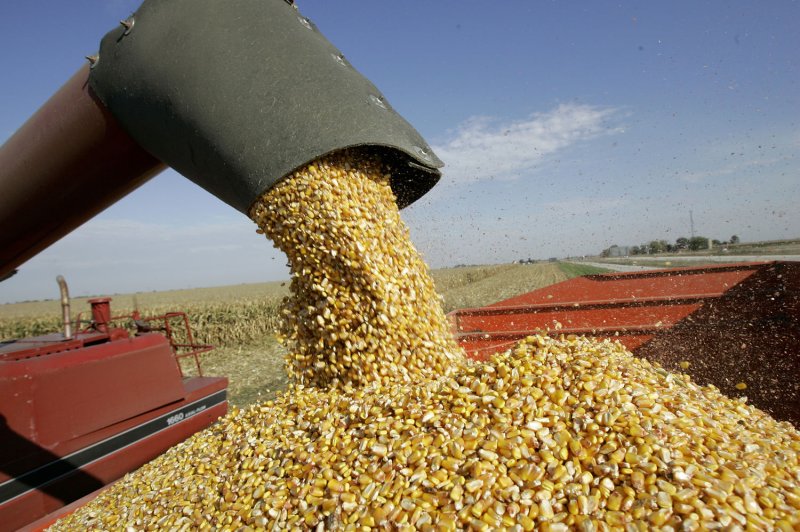Rising ozone levels are likely to depress crop yields. Photo by Brian Kersey/UPI |
License Photo
Oct. 1 (UPI) -- Corn is the most produced grain in the world, but new research suggests the crop could face a growing threat in the form of rising ozone levels.
Most studies into the effects of atmospheric changes on corn yields have focused on carbon dioxide and methane, but a new study suggests ozone, a byproduct of fossil fuel production, could also harm the staple crop.
In field tests, scientists exposed several different corn plant varieties to ozone levels approximating future atmospheric concentrations.
"Ozone enters plants the same way carbon dioxide does: It diffuses from the atmosphere into the leaf," Lisa Ainsworth, lead researcher and a scientist with the U.S. Department of Agriculture, said in a news release.
But while CO2 is a nutrient for plants, ozone is a toxic pollutant. It destroys biological tissues and hinders photosynthetic carbon uptake in leaves.
"Basically, ozone accelerates the aging of the leaf," said University of Illinois plant biology professor Andrew Leakey.
Though scientists aimed to predict the impacts of future ozone levels, their findings -- published this week in the journal Global Change Biology -- suggest corn plants are already being harmed.
"Our research suggests that current ozone levels decrease corn yields by as much as 10 percent," Ainsworth said. "That's as much as drought or flooding or any single pest or disease, but this is a relatively unstudied component of yield loss in the U.S."
Scientists subjected their test plants -- 45 different hybrid varieties -- to ozone levels that are already being measured in places like India and China, where hundreds of new coal plants are under construction. Not all of the plants were equally harmed. Some plant varieties were more sensitive to the pollutant than others.
"We found two maize lines whose offspring were more sensitive to ozone pollution, regardless of which other types of corn we bred them with," Leakey said. "Their genetic deficiencies manifested in different ways when exposed to the high ozone conditions."
In followup studies, scientists hope to hone in on genetic differences that might allow crop scientists to develop varieties that are more resilient to ozone.















